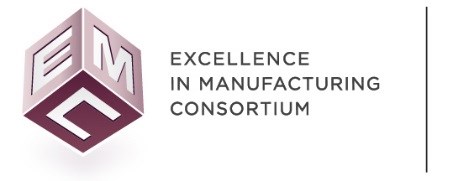Worker experience is one of the Canadian manufacturing sector’s most important resources.
Alas, this resource isn’t unlimited — as workers age out of their positions and begin to retire, keeping what they’ve learned inside of your company can be a difficult task. If employees approaching retirement aren’t able to pass on their knowledge to their colleagues, manufacturing methods and processes could be lost.

Through effective succession planning, long-time employees have an opportunity to keep their experience alive and well within their organizations - even after they retire – all while ensuring that new workers have a strong foundation of expertise to build upon. Let’s delve into the elements of a beneficial succession process!
There are two core parties involved in succession planning — the employee and their successor.
To make succession planning effective, both the employee and successor must have shared goals in mind, and both should be willing to teach and learn from each other. Oftentimes, long-time employees may be unwilling to share what they’ve learned throughout their careers with newer workers, feeling that these parties may not be able to understand something that has taken years (or decades) to develop, or should be required to sort through it on their own.
To overcome these barriers, long-time employees may need coaching to understand why succession planning is taking place: for the collective benefit of the company.
Consider that if a long-time employee leaves a company without passing on what they’ve learned, the company will be without that knowledge entirely. Even if a successor is unable to fully comprehend a process or lesson, retaining a part of that knowledge will still provide the company with a net benefit. Strong communication is a key to providing workers with context for their goals.
Of course, successors must also be willing participants in the succession planning process.
For this reason, select an employee successor you are confident will engage in the process, demonstrates the willingness to learn, and is committed to long-time employment with your company. The act of choosing a worthwhile successor should be a thorough, involved process that ensures the original employee’s talents remain actively utilized in your business.
Ideally, an employee’s successor should also be an effective teacher themselves, which can help propagate and spread knowledge throughout your entire organization. Remember that while the early stages of succession planning may only be possible between two employees, the right successor can help make pieces of specialized information into standard operating procedures!
As many employed by the Canadian manufacturing sector continue to retire from their roles, effective succession planning is critical for businesses to remain competitive in a globalized economy. By selecting the right combinations of knowledgeable, experienced employees and enthusiastic, motivated successors, even the most obscure methodologies and processes can be continuously understood and employed by your workers.
Stoke a culture of sharing and spreading knowledge throughout your business, and you’ll find that consistent innovation and progress become easy to achieve.
Are you onboarding new employees? Are you building the workforce for the future of your organization?
EMC’S WILWorks Graduate program will help Ontario Manufacturers hire, train, and retain the next-generation employees to be the future of your company—as well as the future of the manufacturing industry.
EMC’s WILWorks Graduate online pre-orientation courses complement existing onboarding procedures by training recent new hires to be strong communicators and team players primed for success to increase productivity.
The program offers support and training for eligible recent new hires, ages 15-29, with an incentive of up to $5000 to offset new employee onboarding costs. In addition, recent graduate new hires are provided free industry-leading EMC training.
EMC’s WILWorks Graduate program is for employers in the manufacturing sector (or an allied industry) who provide training and jobs in Ontario.
For more information, we welcome you to visit our website.


